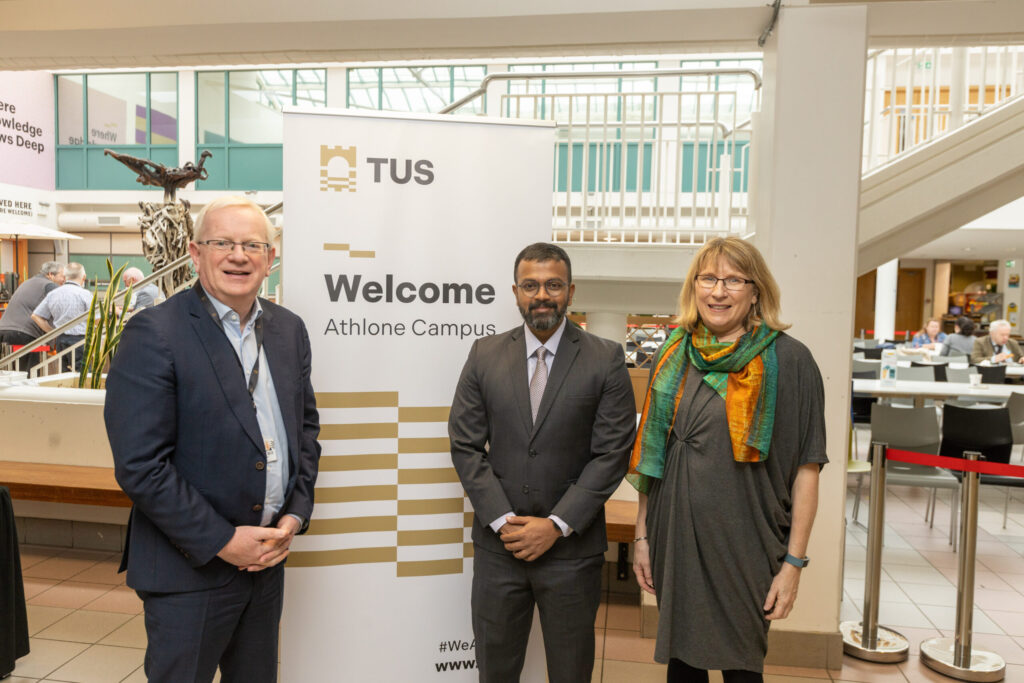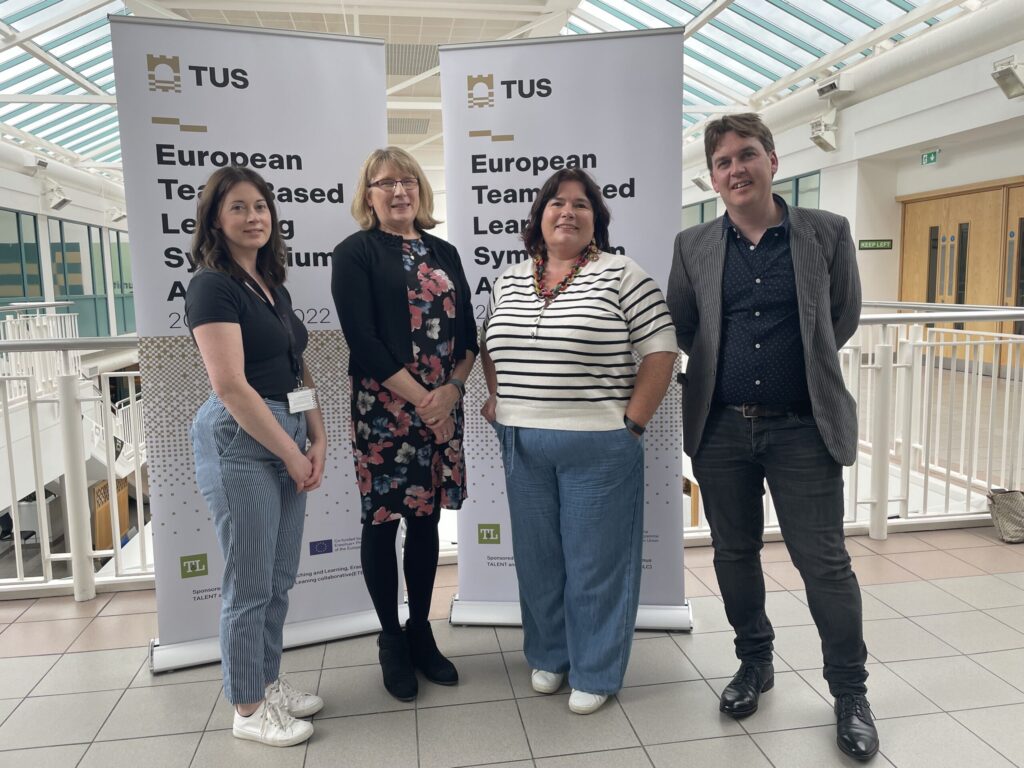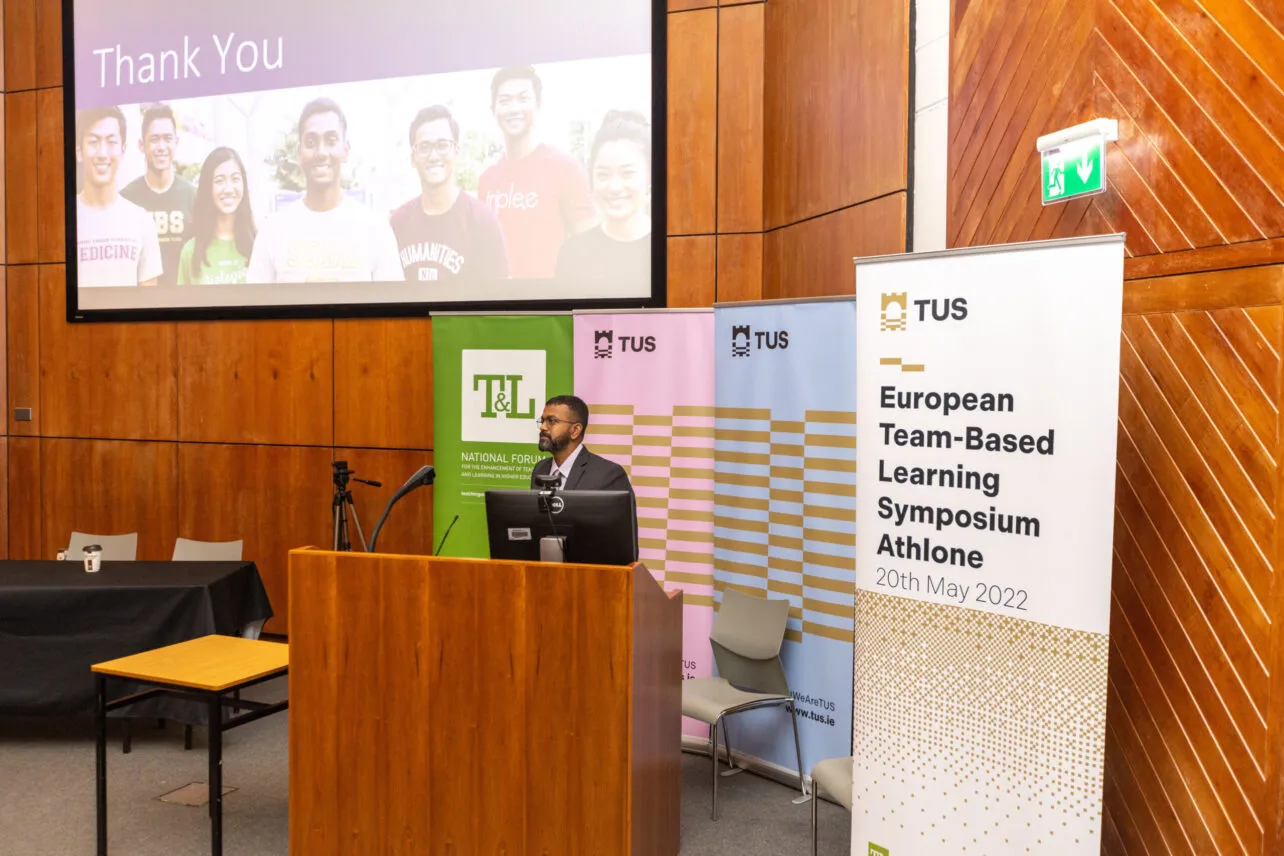Innovative teaching method being popularised in Ireland by TUS researchers and educators
More than 200 delegates across Ireland, the UK, Portugal, Spain, Poland, Italy, and beyond descended upon the Technological University of the Shannon, Athlone Campus, this week for the inaugural European TBL Symposium.
The interdisciplinary forum brought educators and researchers together to share their expertise and experiences of team-based learning (TBL), an innovative teaching method, which encourages educators to ‘flip the classroom’.
Unlike traditional teaching methods, TBL requires students to complete assignments or set activities ahead of class time in preparation for robust debate and in-class problem-solving, which includes not only their peers but also their lecturers.
This “co-construction of knowledge and understanding” coupled with immediate feedback engages learners, while developing their confidence and transferable skills, says David O’Hanlon, an early adopter of TBL who lectures at TUS.

While team-based learning is just one of several group-based pedagogical approaches utilised by the lecturers at the Technological University of the Shannon, the evidence base in support of it is compelling.
The approach has been found to foster inclusion and have a positive impact on retention as students are more highly engaged, get to know their peers and lecturers better and issues can be identified early on, stopping them from “falling through the cracks”.
“More so than other approaches, TBL gives lecturers an insight into what students know and what they’re struggling with – it’s a great way of building up checkpoints throughout the year to make sure students are on the right track and a really powerful tool from the educator’s perspective,” Mr O’Hanlon says.
“From a students’ perspective, one of the big things in helping them to adjust to higher education is making a friend within the first six weeks of university. With TBL, you’re automatically part of a group, which gives a sense of belonging and comradery.”
“In addition, the way the group work is set up, it also means that people can’t not show up – there are ongoing quizzes and activities that encourage them to be present and very active in their learning, ensuring better learning outcomes,” he continues.
Dr Anne Marie O’Brien, chair of the European component of the TBL Collaborative, a global organisation of educators encouraging the use of TBL at all levels of education, explains that it’s “almost like positive peer pressure”.
“The team’s success depends on each individual member pulling their own weight, and knowing that, no one wants to let the side down. They’re all having to discuss it and derive solutions – and it’s everybody in the class, students and lecturer, so everybody is learning what they’re meant to be and from each other as well.”
TUS, under the direction of Nuala Harding – the head of the Department of Learning and Teaching – is now leading the way in terms of adoption of team-based learning in Ireland, Dr O’Brien says, referring to a European pilot programme, of which TUS is a principal partner.
Through TALENT, a €400,000 project funded by European Erasmus+ programme, TUS and partners in the UK, Spain, and the Netherlands are training and supporting secondary school teachers to apply TBL in their classrooms.
“We set out to develop training and support for teachers wishing to bring the TBL approach to schools in Europe, while simultaneously conducting research on the novel adaptation to secondary schools,” she explains.
“Project TALENT is a great example of how the research and expertise within TUS can be applied to impact our communities both at home and abroad.”

TUS is currently working with secondary school teachers at Athlone Community College and Coláiste Chiarán who showcased the outputs from the project at the European TBL Symposium this week.
“Momentum is really starting to build – people are interested in exploring other teaching approaches, especially after the pandemic and the move to online learning. Though TBL is primarily a classroom-based approach, it can be adapted for online with all of the same benefits to the student,” Dr O’Brien says.
“Overall it’s a great way to reach students – TBL is a very inclusive process; it really embraces the concept of accessibility in education,” adds Catherine O’Donoghue, who is the acting head of the Department of Learning and Teaching at TUS.
“Students prepare material before class so they are more ready to participate in class activities and share their ideas, and because they are working in teams, there is a lot of peer support which can really help students develop confidence as well.”


